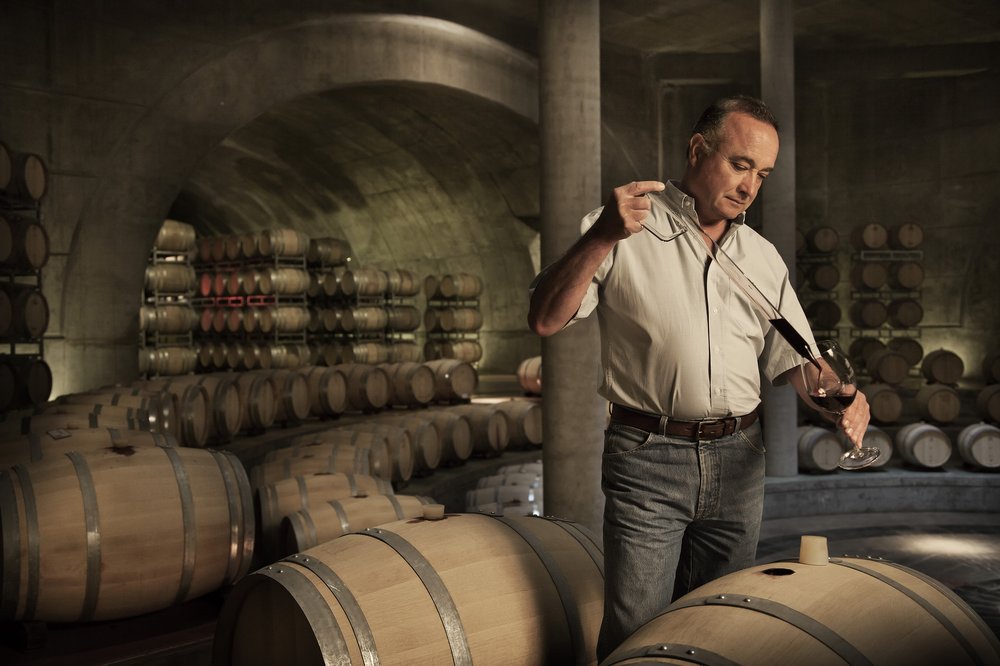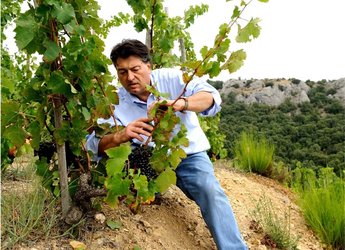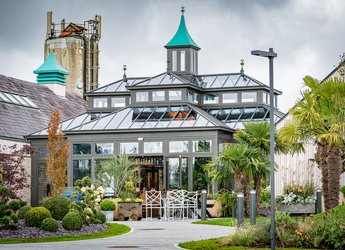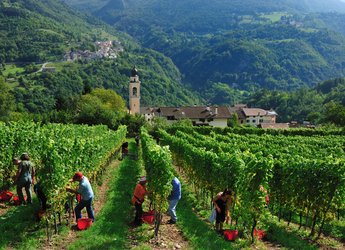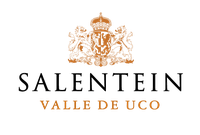
Salentein Winery Pinnacle Expressions of Uco Valley
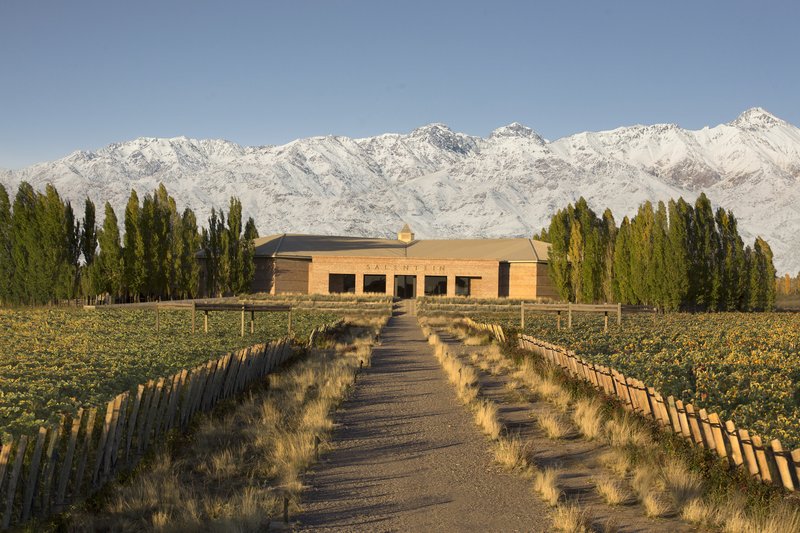
Tucked away in the high desert foothills of the Andes, the remote Uco Valley is one of the most talked-about and exciting wine regions in the Americas — thanks in large part to the pioneering efforts of the Bodegas Salentein winery, founded by Dutch entrepreneur Mijndert Pon in the mid-1990s. Thanks to over 25 years of passionate work, love for the land, and respect for its people, the Pon family helped position the Uco Valley as a world-renowned appellation.
Today, Frederike and Ben Pon are leading this benchmark estate built by their father and they remain committed to mastering the art of high-altitude vineyard cultivation.
As anyone familiar with their wines can attest, they are succeeding beautifully.
With vineyards located between 1,050-1,700 meters / 3,445-5,577 feet above sea level, Salentein’s Uco Valley wines are incredibly fresh, terroir-driven expressions that are crafted with deep-rooted respect for the native land, people, and culture. Captivating to any fine wine lover or terroir fanatic, the Uco Valley’s dream-like terroir comprises staggering altitudes, a wide range of meso- and microclimates, and unique, heterogenous soils.
Salentein was the first to plant and cultivate vines in the region’s San Pablo territory in 1996 and were instrumental in the creation of its official Geographic Indication, which gained recognition in 2019 — a realization of Pon’s vision that this is a very special spot to grow wine.
Their San Pablo GI vineyard holdings include La Pampa, Los Nogales, Las Secuoyas, Los Jabalíes, and El Cerro. Across the rest of the Uco’s Tunuyán district, Salentein also holds prime single vineyards in the Gualtallary GI (Las Tunas) the Altamira GI (El Tomillo) and in Los Arboles (El Oasis).
Aside from being terroir groundbreakers in the Uco Valley, Salentein is also the region’s first enotourism destination — beyond its world-class winery and cellars, the property is home to a 49-hectare / 121-acre nature preserve, the showpiece Killka Center for Culture and the Arts (one of Argentina’s premier galleries), Posada Salentein (luxury guest accommodations), fine dining restaurants, and the landmark Chapel of Gratitude, a non-denominational chapel, built using ancient local stonework techniques.
From highly nuanced single-vineyard expressions (the product of tirelessly innovative research) to the easy-going, everyday releases, Bodegas Salentein is a byword for the celebration of Argentina’s fine wine culture that is not just fully established but continuing to grow.
Bodegas Salentein Highlights
Salentein is a landmark pioneer of the Uco Valley and has been owned and operated by the Pon family since its founding in 1996.
Chief winemaker José Galante is known to many as the “Father of Argentine Malbec” and is considered one of the most respected names in the country.
Salentein’s vineyards are planted at some of the highest elevations in the world.
Among their many other accolades, Salentein was named one of the World’s Best Vineyards in 2023.*
* William Reed 2023
Framing Argentina’s Fine Wine Territory
Many iconic images spring to mind when the conversation turns to Argentina: the tango … gauchos on horseback herding cattle … the expansive grassland of the Pampas. But it’s the towering, snow-capped Andes that indelibly frame the country’s wine territory. On the 90-minute drive south from Mendoza’s bustling, eponymous capital to the Uco Valley, they loom majestically to your right, foretelling the heights of fine, mountain terroir you’re approaching.
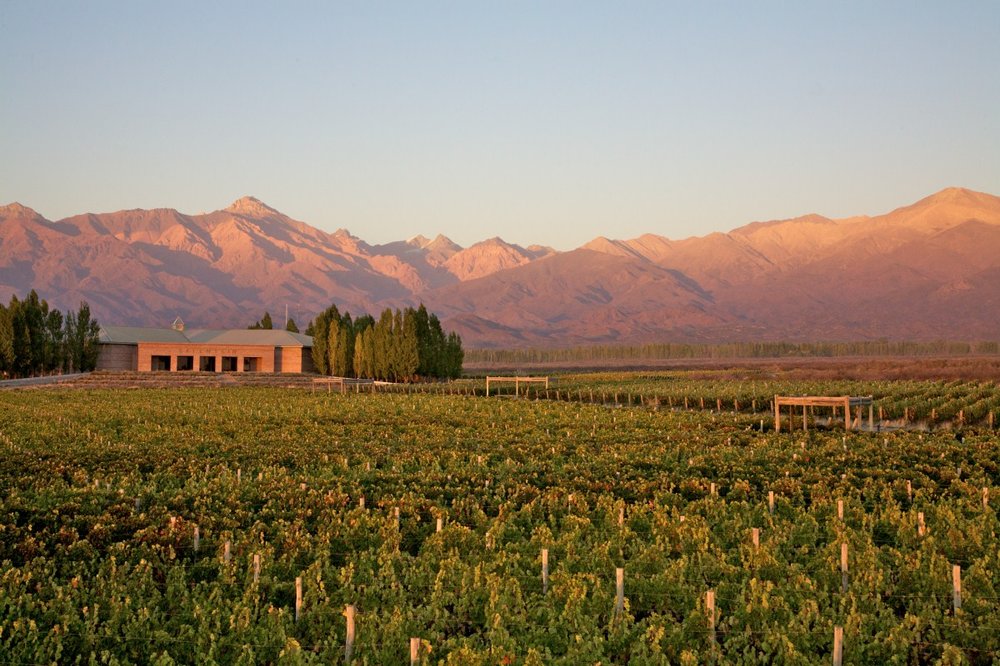
Uco’s Beautiful Terroir
When you’re located in such a dramatically beautiful place, it’s easy to reach for superlatives — but Bodegas Salentein is truly situated in a magical part of the winemaking world.
Their bodega and vineyards are nestled in the highest part of the Uco, in the northern subregion of Tupungato. Vines or no, these are some of the highest elevations in the world — between 1,050 and 1,700 meters / 3,445 and 5,577 feet. Way up here, dazzling solar intensity helps grapes reach phenolic perfection during the day, while the ensuing cold nights (the daily diurnal swing can be as dramatic as 33°F) lock in aromatic intensity and flavor complexity.
The region’s unique alluvial soils are rich in deposits of calcium carbonate; the varying rock sizes that cling to these deposits aid in water retention and deliver a distinctive minerality, producing wines of power and structure. At lower altitudes, a relative term at 1,175-1,350 meters / 3,855-4,429 feet above sea level, soils are stonier with a greater percentage of calcium carbonate. As you move higher — between 1,350-1,700 meters / 4,429-5,577 feet — the soils become even more diverse, varying between sandy loam with river deposits and deeper soils that contain a larger number of calcium carbonate-covered stones. Some spots contain pockets of calcium carbonate and gypsum, originating from ancient volcanic ashes.
Andean snowmelt, swelling the nearby streams and aquifers, is used to irrigate the vines — without it, this desert-like climate would be able to grow very little of anything, let alone grapes. The water’s unique mineral content naturally encourages a lower pH in the grapes, which yields wines with higher acidity, deeper color, and longer aging potential.
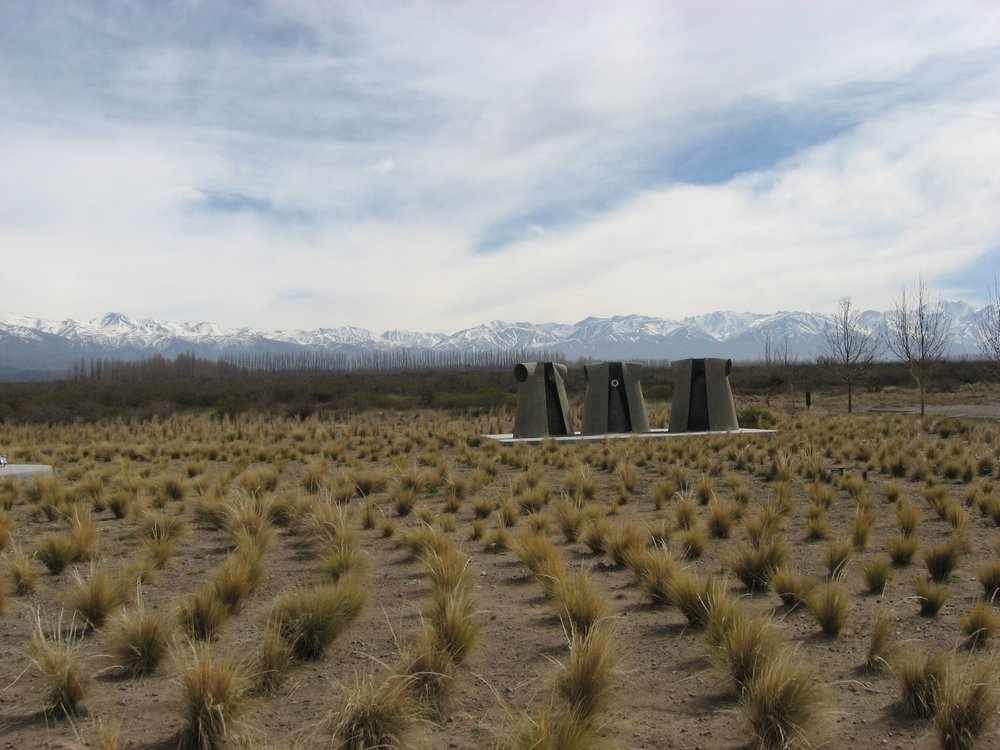
Champions of Sustainability
Along with producing world-class wines, Bodegas Salentein is deeply committed to responsible, respectful farming the Uco Valley and preserving this stunning landscape for future generations.
With the aim of achieving a natural balance within the ecosystem, the vineyard team eschew pesticide and herbicide use. Native flora are planted as cover crops and all organic matter resulting from the vineyards and wine production returns to the earth as a natural fertilizer.
Careful water management/conservation in this desert clime is another cornerstone of Salentein’s approach, which they achieve through precise drip irrigation across all vineyards. The team also conducts ongoing research into renewable energy sources, such as solar and hydroelectric power, and uses recycled materials in all wines, bottles, and packaging materials. The property’s 49-hectare / 121-acre nature preserve maintains the natural desert landscape and is planted with native grasses and bushes symbolic to Mendoza.
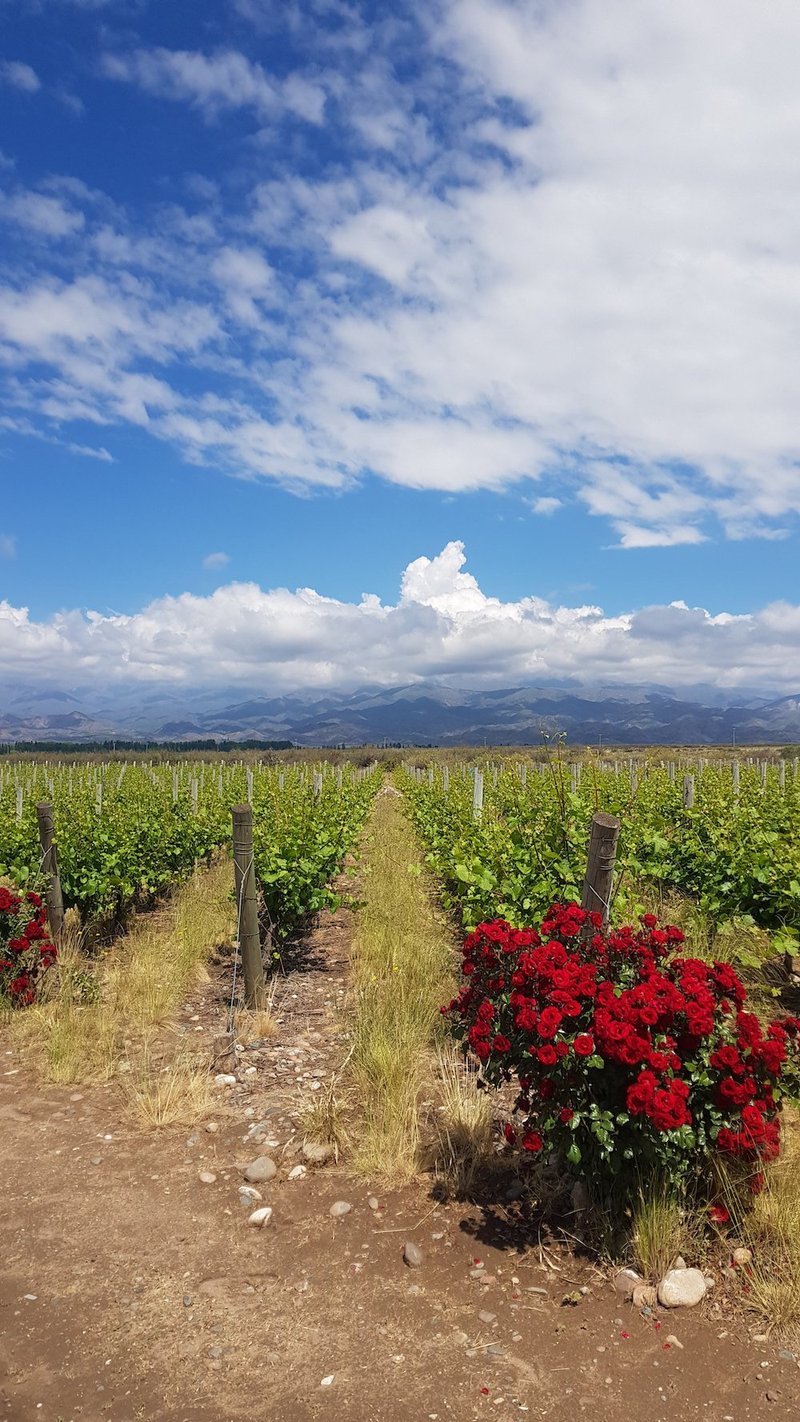
State-of-the-Art Salentein Winery
It isn’t just the wines that are works of art: Salentein’s magnificent winery is a case study in form meeting function. Renowned winemaker Michel Rolland consulted on the design of the property and cruciform building, a nod to the region’s early Jesuit settlers. The bodega’s cross shape also allows for exceptionally gentle handling of the grapes; helped by a gravity-fed design, each wing has its own fermentation tanks which means the distance the fruit, then wine, must travel between winemaking steps is greatly reduced — another assurance of the utmost quality.
Each of the four wings are two levels: the ground level houses stainless steel tanks and French oak vats for fermentation and storage while the underground is reserved for longer-term aging in oak casks. The wings converge in a circular central chamber (whose stunning floor is intricately inlaid with local stone) and doubles as an amphitheater where concerts and events are frequently held.
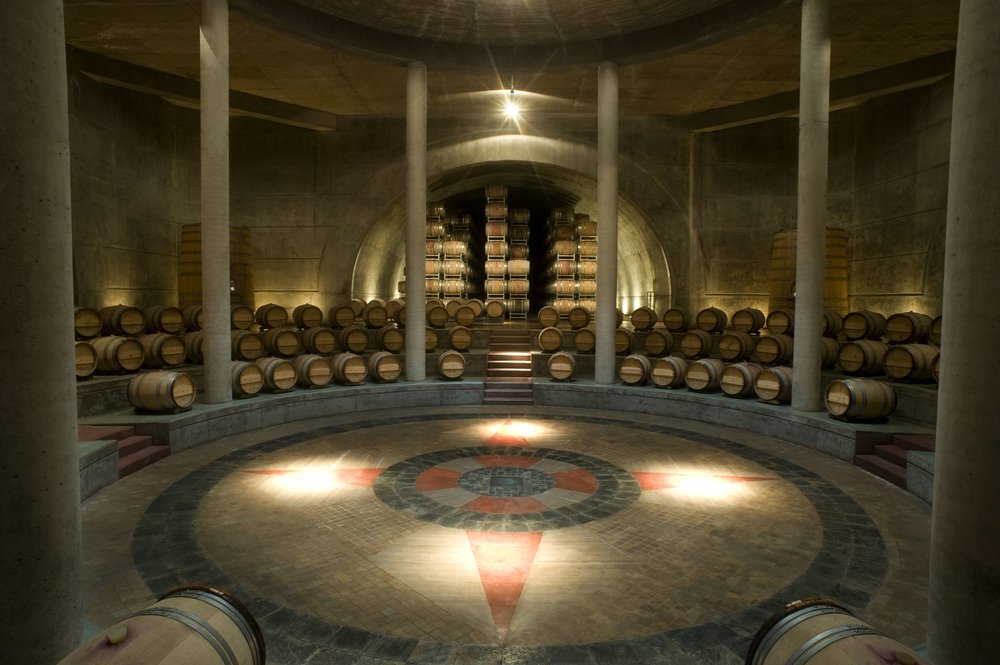
The Father of Argentine Malbec
You cannot speak of Argentine wine without mentioning José “Pepe” Galante, Salentein’s chief winemaker. He is one of the most influential winemakers in the country — and more than a few call him the “Father of Argentine Malbec.” With over 40 vintages under his belt, Galante’s influence has reached across generations and transformed Argentine wines, elevating them to the international fine wine stage.
Collaborating with him in the cellars is an equally talented stable: legendary Napa winemaker/consultant Paul Hobbs, senior winemaker Jorge Cabeza, and agronomist Diego Morales (who was recognized as Winegrower of the Year in 2023 by Tim Atkin, MW).
